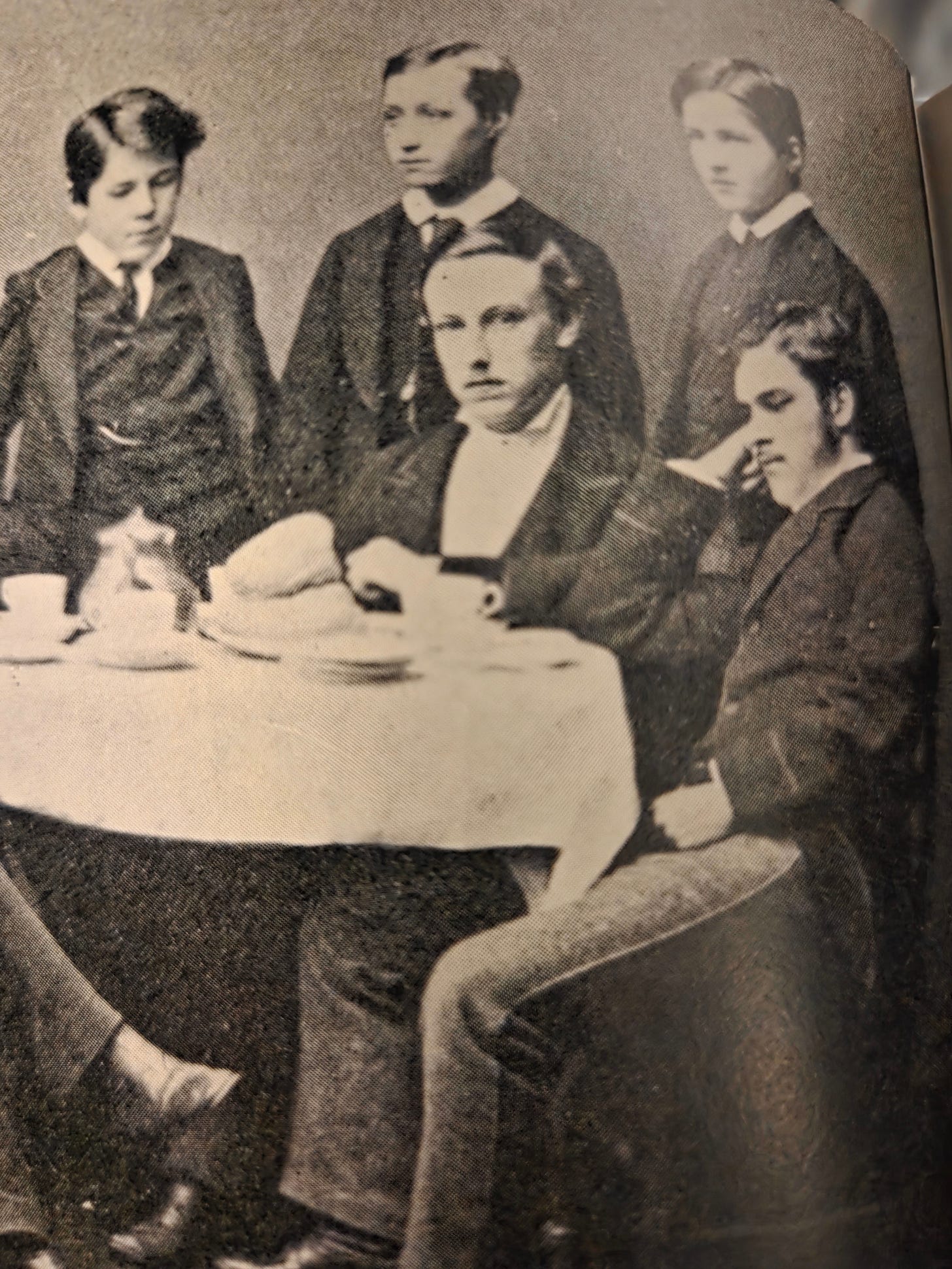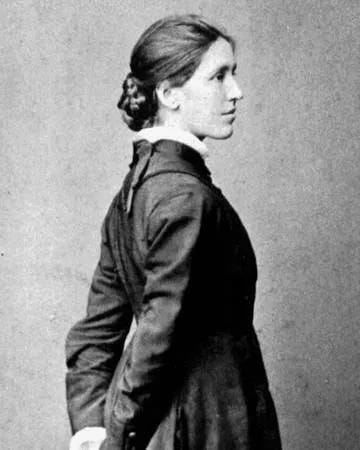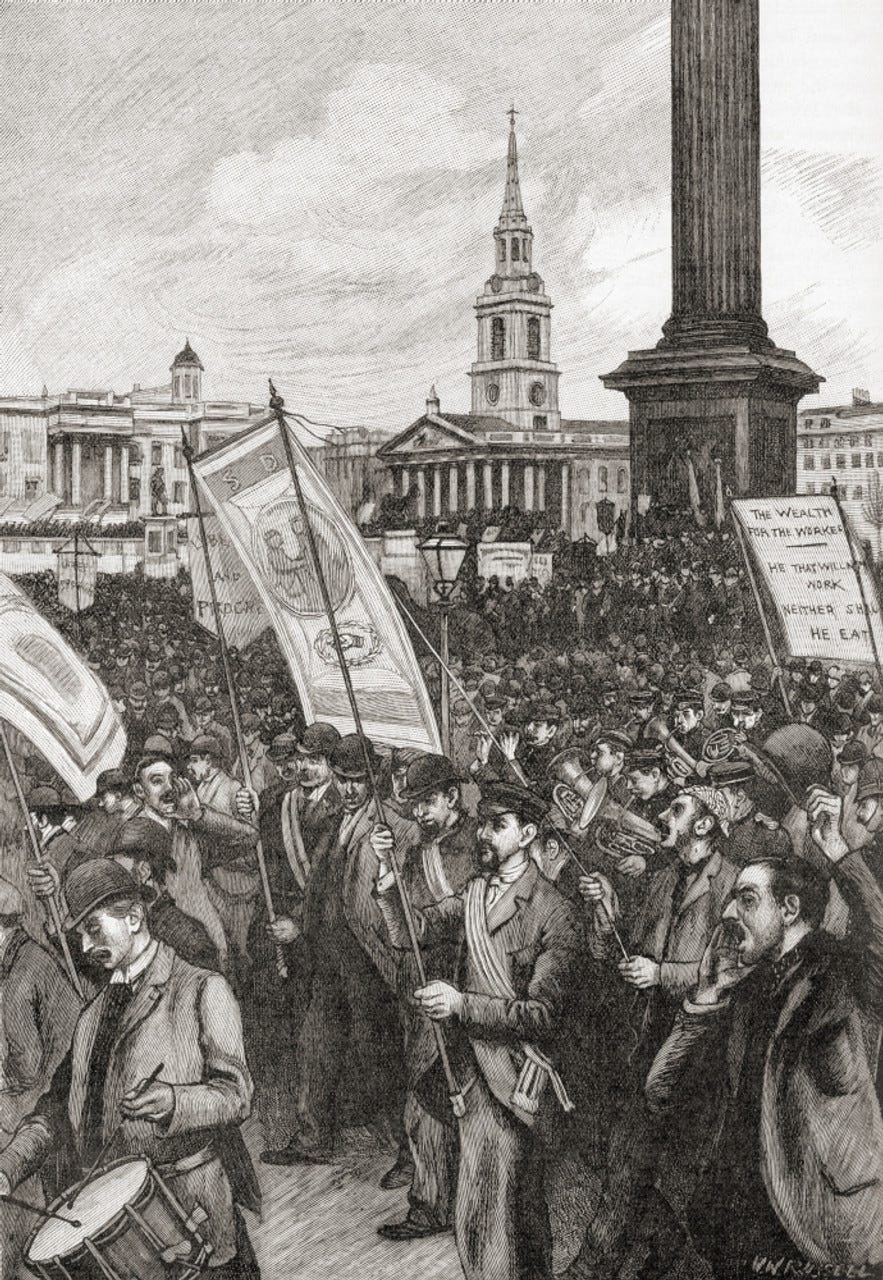The name Henry Stephens Salt is floated around in vegan circles for his early commentary on vegetarianism, and rarely is he seen beyond this reach. Despite his niche circle of fans, his work is seldom read and has received little attention, despite being a close friend and influence on some of the most prominent names on the global stage; Peter Kropotkin, Mahatma Gandhi, George Bernard Shaw, and Henry Thoreau, to name a few. A socialist, vegetarian, environmentalist, activist, and humanitarian icon, his name has been largely lost to history.
Henry Stephens Shakespear Salt was born September 20th, 1851, in the town of Nainital, India, to an officer in the Indian army and his homesick wife, Ellen Matilda Salt. Soon after his birth, his mother decided that Henry could not grow up in India, and that he must return to England and attend Eton College, an exclusive private boarding school back in London. It was ideal for Ellen; she would live in England with occasional visits to India, and Henry’s father, also named Henry, would remain in India, only occasionally returning to England.
For this reason, Henry grew up with a strained relationship with his father and spent much of his childhood alongside his mother, living with her many relatives across England. The family doctor, Dr. Darwin (father of the famed Charles Darwin), would often visit the Allnat’s homes (Ellen’s maiden name) and quip that a good doctor would check on his patients when they were healthy, as that was much easier than addressing health problems once they were sick.
With no father figure, Rev. C. Kegan Paul became a father substitute, recommending Henry’s place and scholarship at Eton. He thrived in the academic setting, excitedly chattering away about everything and anything to anyone or no one at all. He was often found intoning while walking along the creeks in the woods, quoting Shakespeare, Virgil, and Lucretius before entering his teens (I strongly suspect that by any measure today, he would receive an autism diagnosis).
He slowly befriended Jim Joynes, and through them, he learned how to play the part of the students at Eton. The school existed to prepare the upper society; academics were secondary. Functionally, it was a playground for the children of the rich. Early on, it became clear to Henry that no qualifiers made the rich rich or the poor poor, as the boys he surrounded himself with were no better at saving than the poor folks he knew. Jim wasn’t like that— he was studious and saw the sham of Eton for what it was. While Henry appreciated Jim’s company, he had fallen in love with his sister, Kate, her “boyish walk, her love of reading,” and, according to her brother, “had more masculine interests”, and while studying at Cambridge University with Henry, Jim asked Henry to marry her.
After finishing his degree in 1875 at Cambridge, he returned to Eton as a teacher alongside his friend Jim Joynes. During the day, they taught the future aristocrats, and at night, they translated Marx and analyzed the poems of Shelley. Rumblings were made that they were reformers. Amid these concerns, Jim was arrested during a trip to Ireland, and while the arrest was a mistake, he was eager to release a book about his travels. Eton had no interest in the scandal and made it clear— it was either his job or the book. He chose the book.
Jim’s future at Eton was over, and Henry’s was also waning. He officially asked Kate for her hand in marriage, and the future was uncertain.
Moving to the Country
It was soon said that the “Masters” at Eton were leaving in “shoals” to join the socialist party. Salt and Joynes were mentioned at a socialist meeting as proof that academics were backing the socialist movement, and they became famous overnight. It was all very intense for Salt, and he felt that he should be famous not for his politics but for popularizing the ideas that Shelley stood for. With this new focus, he left Eton, and Kate & Henry left for a tiny cottage in Surrey, to the laughter of the Eton elites.
Jim visited frequently, often bringing various characters who were interested in the mysterious man who had left the ivory tower for a simple life in the country, including socialist William Morris, poet Edward Carpenter (also known as the ‘gay godfather of the British Left’), and a young Irishman named George Bernard Shaw, among other noted writers. It is also noted that Kate’s literary knowledge was equal to, if not superior to, Henry’s, and while many came for Henry, they stayed for Kate.
Kate and Henry’s relationship was special. There was no physical intimacy, and George Bernard Shaw comments in Salt’s biography that Kate “was a homo.”1 Despite this, Henry made no qualms about his love for her and spoke of her often, even decades after her passing. Their love for one another was based on mutual respect and love for their innate character, not physical characteristics (or gender).
During this time, he also took his role as a socialist more seriously, identifying as a scientific socialist who focused on humanitarian, vegetarian, anti-vivisection, and anti-vaccination efforts through the Humanitarian League. He— alongside his friends— was inspired to find socialism & vegetarianism by Shelley, who served to fundamentally shape Salt’s broader social, political, and (rationalist) religious views, and who Salt considered to be his preeminent “guide and companion”.2
Recognizing that meat was no different than his own flesh had a powerful effect on Salt, causing him to question the essential nature of the ethics and institutions of the “so-called ‘civilisation’” surrounding him.3 He believed that “benevolence and brotherhood”, although present, were inconsistent and highly exclusive, and that the veneer of supposed civilization hid an underlying tendency towards violence and exploitation that underpinned not only humanity’s relationship with other species, but also its own political, economic, and social relations. This funded wars, class, and perpetuated capitalism & imperialism itself.
From this analysis emerged his holistic humanitarian socialism, grounded in the belief that humanity's positive future progress depended upon the simultaneous erosion of this “doctrine of self-seeking” and the development of mankind’s higher humane, cooperative instincts.4
Within this awakening, he had moved, and instead of educating the nation's future leaders, he was instead inhabiting a small village. He spent much of his time growing his own food and writing papers as Kate tended to the house and read voraciously. He occasionally gave lectures, but commented to Jim that he could not connect with his audiences of unemployed workers. In his own words, “We have more to learn from them. Their good humour in suffering, their bed-rock philosophy have a lot to teach us. Our education, Jim, has only just begun.”
With mass unemployment and the Land War in Ireland, protests were escalating across England. Sir Charles Warren, the Chief of Police, declared Trafalgar Square out of bounds for demonstrations. Henry, alongside John Burns, Cunnighame Graham, and others, headed to London to march on Trafalgar Square. Thousands marched and were attacked by armed police and cavalry. One man was killed, and both Burns & Graham were imprisoned. Somehow, Salt’s only misfortune was a lost watch. This day has since been remembered as the original Bloody Sunday (1887).
Keep reading with a 7-day free trial
Subscribe to The Poor Prole's Almanac: Restoration Agroecology to keep reading this post and get 7 days of free access to the full post archives.








